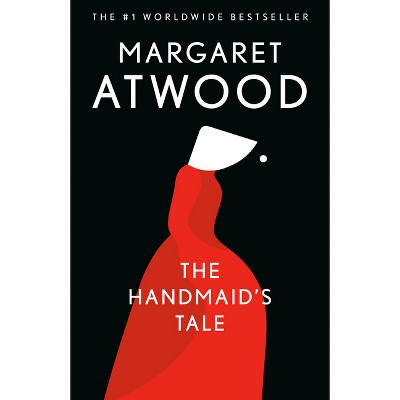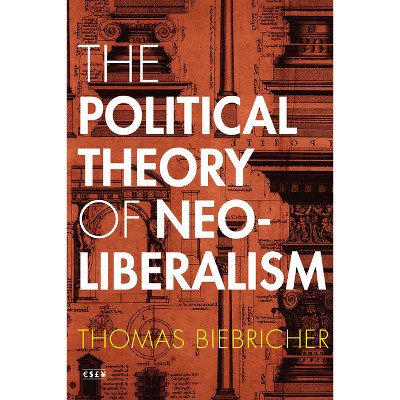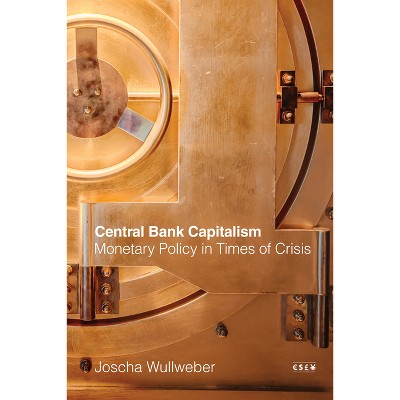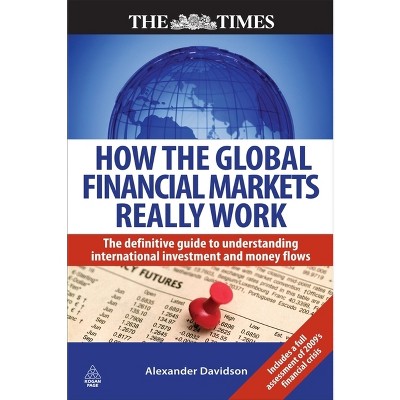Sponsored

Neoliberalism and Race - (Currencies: New Thinking for Financial Times) by Lars Cornelissen
In Stock
Sponsored
About this item
Highlights
- Lars Cornelissen argues that the category of race constitutes an organizing principle of neoliberal ideology.
- About the Author: Lars Cornelissen is a historian of neoliberalism.
- 280 Pages
- Philosophy, Political
- Series Name: Currencies: New Thinking for Financial Times
Description
About the Book
"In this book, Lars Cornelissen argues that starting from its emergence in the interwar period, neoliberalism has rested conceptually and politically on a Eurocentric vision that portrays Western culture as the epitome of civilizational progress. Race and Neoliberalism situates this political economic philosophy against the backdrop of two key historical developments following the Second World War: the broad shift in Western attitudes toward the concept of race and the end of Empire. It traces how neoliberal thinkers assessed these developments and adjusted their thinking to it, searching for subtler and more coded ways to conceptualize race and structure their Eurocentric worldview. Over five chapters dealing with thinkers such as Friedrich Hayek, Ludwig von Mises, Thomas Sowell, Charles Murray, and others from 1910 to the present, Cornelissen examines how neoliberal thinkers have used racial constructs to conceptualize world history, underdevelopment, colonial history, material inequality, and intelligence. Situating neoliberal thinkers in relation to key moments and debates of twentieth century racial discourse - from decolonization at mid-century to The Bell Curve to the current resurgence of xenophobia and the far right - Cornelissen shows that neoliberals were not just the passive recipients of racial discourse, but actively impacted it"--Book Synopsis
Lars Cornelissen argues that the category of race constitutes an organizing principle of neoliberal ideology. Using the methods of intellectual history and drawing on insights from critical race studies, Cornelissen explores the various racial constructs that structure neoliberal ideology, some of which are explicit, while others are more coded. Beginning in the interwar period and running through to recent developments, Neoliberalism and Race shows that racial themes have always pervaded neoliberal thinking. The book's key argument is that neoliberal thought is constitutively racialized-its racial motifs cannot be extracted from neoliberalism without rendering it theoretically and politically incoherent. The book aptly explores a wide variety of racial constructs through the structure of neoliberal ideology, deconstructing the conceptualizations in the works of landmark thinkers such as Ludwig von Mises, Friedrich Hayek, Peter Bauer, Thomas Sowell, Charles Murray, and others from the early twentieth century to the present. In this original-perhaps controversial-critique, Cornelissen asserts that neoliberal thinkers were not just the passive recipients of racial discourse, but also directly impacted it.
Review Quotes
"As our neoliberal world appears to degenerate into racist authoritarianism, Cornelissen demonstrates that race has always been central to the neoliberal project. Compellingly researched and wonderfully broad in its scope, Neoliberalism and Race deserves to fundamentally alter how we understand what neoliberalism has been." --Arun Kundnani, author of What is Antiracism?
"Cornelissen's Neoliberalism and Race is a game-changer. In its pages, we find early neoliberals working for the British Colonial Office and their successors wrestling with the twilight of empire. Cornelissen's brilliant and relentless analysis will convince you that even when they claim to be race-blind, neoliberals are always talking about race." --Melinda Cooper, author of Family Values
About the Author
Lars Cornelissen is a historian of neoliberalism. His writings have been published in History of European Ideas, Constellations, and Modern Intellectual History.Shipping details
Return details
Trending Philosophy

















